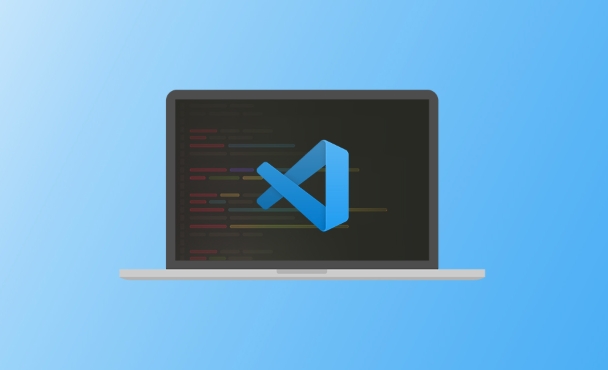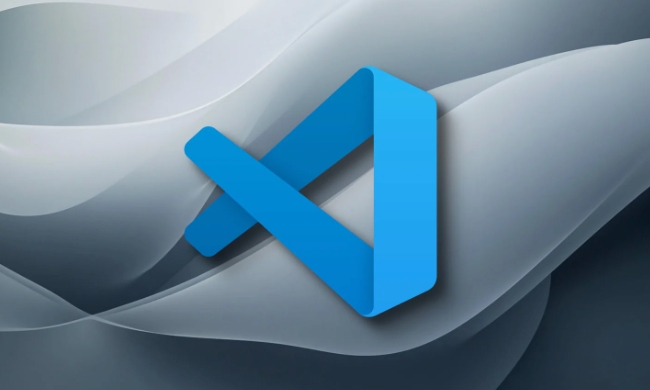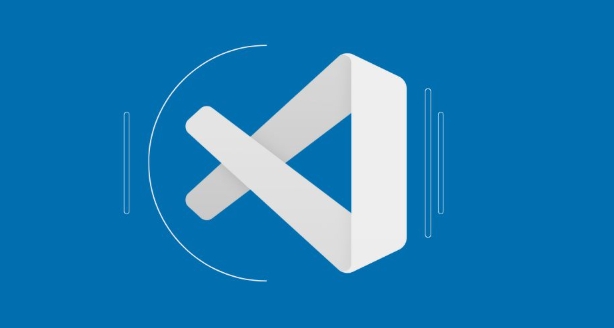Choosing the right theme can improve the VSCode programming experience and reduce eye fatigue. Key elements include moderate contrast, bright and clear grammar, and comfortable style. 1. Dark is the default dark theme, with obvious contrast in dark gray text in the background, suitable for long-term encoding and no installation required. 2. One Dark Pro has a soft blue-purple color scheme, optimized for highlighting in multiple languages, supports icon theme matching, and needs to be expanded and installed. 3. Dracula Official is mainly purple, with strong unity and frequent community updates, suitable for languages such as Python and Go. 4. GitHub Theme restores the web style, supports light and dark modes, suitable for collaboration and document writing. You can switch themes through shortcut keys or settings and customize colors in settings.json. It is recommended to start from Dark or GitHub to try different styles to find the theme that suits you best.

If you are programming with VSCode on Linux, choosing the right theme will not only improve the visual experience, but also reduce eye fatigue. The key is to choose a theme with appropriate contrast, bright grammar, and not dazzling overall style.

1. Dark (default dark theme)
This is the default dark theme that comes with VSCode, and many developers use it directly because it has done well. The background is dark gray, and the text color contrast is obvious, which is suitable for long-term encoding.

- Moderate contrast, not easy to cause visual fatigue
- Supports grammar highlighting for most languages
- No additional installation required, use out of the box
If you just switched to Linux, or just wanted to find a stable and not fancy theme, Dark is a safe starting point .
2. One Dark Pro
This theme mimics the One Dark style of the Atom Editor and is loved by many front-end and full-stack developers. The overall color scheme is blue and purple, which looks very comfortable, especially suitable for writing JavaScript, TypeScript and CSS.

Advantages include:
- Soft colors, but the keywords still stand out
- Supports highlight optimization in multiple languages
- There are matching icon themes that can be used with (such as VSCode Icons)
The installation method is very simple: search for "One Dark Pro" in the extension store and click Install.
3. Dracula Official
Dracula is a very popular open source theme for a variety of editors. There is also an official version on VSCode, with purple as the main tone, and the syntax is bright and clear, suitable for writing languages such as Python, Go or Shell scripts.
Features are as follows:
- Theme color is strong and not easy to distract attention
- Good community support, frequent updates
- Can be used with Dracula's terminal/system theme, with a stronger overall feeling
If you prefer a slightly "personal" color without wanting to go too far from practicality, Dracula is a good choice .
4. GitHub Theme (officially produced)
GitHub has launched its own VSCode theme, restoring the code display style of GitHub’s web page. If you often view code on web pages and want to maintain consistent reading habits, this topic is suitable for you.
Highlights include:
- Light-colored theme, more friendly in bright environments
- Font colors are consistent with GitHub and are highly adaptable
- After installation, you can select Light or Dark mode
This topic is also very friendly for document writing, collaborative development or note-taking projects.
Tips: How to switch and customize themes?
The way to switch topics is simple:
- Shortcut keys:
Ctrl K Ctrl T - Or through the menu:
File > Preferences > Color Theme
In addition, you can customize the colors of certain syntax in settings.json , such as making the string more conspicuous green, or making the comments lighter.
Basically that's it. There is no absolute good or bad thing about the theme, the key is that it suits you. You can start with Dark or GitHub and try out a style like One Dark Pro or Dracula to find the one that best suits your eyes and workflow.
The above is the detailed content of Best VSCode themes for developers on Linux. For more information, please follow other related articles on the PHP Chinese website!

Hot AI Tools

Undress AI Tool
Undress images for free

Undresser.AI Undress
AI-powered app for creating realistic nude photos

AI Clothes Remover
Online AI tool for removing clothes from photos.

Clothoff.io
AI clothes remover

Video Face Swap
Swap faces in any video effortlessly with our completely free AI face swap tool!

Hot Article

Hot Tools

Notepad++7.3.1
Easy-to-use and free code editor

SublimeText3 Chinese version
Chinese version, very easy to use

Zend Studio 13.0.1
Powerful PHP integrated development environment

Dreamweaver CS6
Visual web development tools

SublimeText3 Mac version
God-level code editing software (SublimeText3)
 How to change the default terminal in vscode settings?
Jul 05, 2025 am 12:35 AM
How to change the default terminal in vscode settings?
Jul 05, 2025 am 12:35 AM
There are three ways to change the default terminal in VSCode: setting through a graphical interface, editing settings.json file, and temporary switching. First, open the settings interface and search for "terminalintegratedshell" and select the terminal path of the corresponding system; secondly, advanced users can edit settings.json to add "terminal.integrated.shell.windows" or "terminal.integrated.shell.osx" fields and escape the path correctly; finally, you can enter "Terminal:SelectD through the command panel
 Fixing 'Timed out waiting for the debugger to attach' in VSCode
Jul 08, 2025 am 01:26 AM
Fixing 'Timed out waiting for the debugger to attach' in VSCode
Jul 08, 2025 am 01:26 AM
When the "Timedoutwaitingforthedebuggertoattach" issue occurs, it is usually because the connection is not established correctly in the debugging process. 1. Check whether the launch.json configuration is correct, ensure that the request type is launch or attach and there is no spelling error; 2. Confirm whether the debugger is waiting for the debugger to connect, and add debugpy.wait_for_attach() and other mechanisms; 3. Check whether the port is occupied or firewall restricted, and replace the port or close the occupied process if necessary; 4. Confirm that the port mapping and access permissions are configured correctly in a remote or container environment; 5. Update VSCode, plug-in and debug library versions to solve potential
 How to set environment variables for the terminal in VS Code settings on Linux?
Jul 06, 2025 am 12:23 AM
How to set environment variables for the terminal in VS Code settings on Linux?
Jul 06, 2025 am 12:23 AM
There are two ways to set environment variables for VSCode terminals on Linux: one is to use the terminal.integrated.env.linux configuration item to define variables that are only used by VSCode; the other is to modify the shell configuration file to take effect globally. 1. In VSCode, add variables such as "MY_VAR":"my_value" by setting the terminal.integrated.env.linux field. This method only affects the VSCode terminal; 2. Modify shell configuration files such as ~/.bashrc or ~/.zshrc and add exportMY
 What are VS Code workspaces, and how are they used?
Jul 10, 2025 pm 12:33 PM
What are VS Code workspaces, and how are they used?
Jul 10, 2025 pm 12:33 PM
VSCode workspace is a .code-workspace file that saves project-specific configurations. 1. It supports multi-root directory, debug configuration, shortcut key settings and extension recommendations, and is suitable for managing different needs of multiple projects. 2. The main scenarios include multi-project collaboration, customized development environment and team sharing configuration. 3. The creation method is to save the configuration through the menu File>SaveWorkspaceAs.... 4. Notes include distinguishing between .code-workspace and .vscode/settings.json, using relative paths, and avoiding storing sensitive information.
 Where is the vscode settings.json file located?
Jul 14, 2025 am 01:21 AM
Where is the vscode settings.json file located?
Jul 14, 2025 am 01:21 AM
To access the settings.json file of VSCode, you can directly open it through the command panel (Ctrl Shift P or Cmd Shift P). The default storage location of the file varies according to the operating system. Windows is in %APPDATA%\Code\User\settings.json, macOS is in $HOME/Library/ApplicationSupport/Code/User/settings.json, Linux is in $HOME/.config/Code/User/
 How to set environment variables for debugging in vscode settings?
Jul 10, 2025 pm 01:14 PM
How to set environment variables for debugging in vscode settings?
Jul 10, 2025 pm 01:14 PM
To set debug environment variables in VSCode, you need to use the "environment" array configuration in the launch.json file. The specific steps are as follows: 1. Add "environment" array to the debugging configuration of launch.json, and define variables in key-value pairs, such as API_ENDPOINT and DEBUG_MODE; 2. You can load variables through .env files to improve management efficiency, and use envFile to specify file paths in launch.json; 3. If you need to overwrite the system or terminal variables, you can directly redefine them in launch.json; 4. Note that
 How can I improve VS Code performance on Linux by changing file watcher settings?
Jul 13, 2025 am 12:38 AM
How can I improve VS Code performance on Linux by changing file watcher settings?
Jul 13, 2025 am 12:38 AM
ToimproveVSCodeperformanceonLinux,adjustinotifylimitsandconfigurefilewatcherexclusions.First,increasesystem-levelinotifylimitsbyeditingsysctl.confandaddingfs.inotify.max_user_watches=524288,fs.inotify.max_queued_events=65536,andfs.inotify.max_user_in
 How to disable extensions for a specific workspace in vscode settings?
Jul 05, 2025 am 01:22 AM
How to disable extensions for a specific workspace in vscode settings?
Jul 05, 2025 am 01:22 AM
In VSCode, you can disable specific extensions by configuring .vscode/extensions.json and workspace settings. The specific steps are as follows: 1. Create or edit the .vscode/extensions.json file and add "ignoreRecommendations":true to ignore global recommendations; 2. Use the "recommendations" field in this file to specify only enabled extensions; 3. Open the workspace settings.json file and add configuration items such as "eslint.enable":false to disable support






